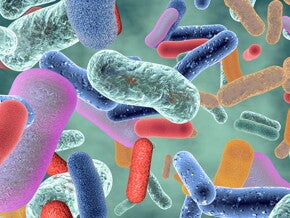
Article
Gut Microbiome and Child Temperament
Nutrition & Disease Management
3 min read
Understanding the dynamics of the gut-brain axis has clinical implications for physical and mental health conditions, including obesity and anxiety.
- Background:
- The role of gut microbiome has been gaining attention, in particular there has been interest in their potential role in regulating mood and behaviour via the gut-brain axis, providing a possible intervening point for mental health conditions.
- Determining this association in early life is important, as many physical and mental health disorders may be predisposed at a young age. The gut microbiome is also easier to modulate at this stage, until the microbiota profile eventually establishes by approximately the age of 2.
- Method:
- A total of 77 mother-toddler (41 boys and 36 girls aged 18-27 months) pairs in the U.S. were included and data was collected from 2011 to 2012.
- Temperament in early life was measured by parental observations, this predicts personality, behaviour and risk for psychological disorders in later life.
- On the other hand, stool samples were used for analysis of the child gut microbiome.
- Key Findings:
- Among boys, surgency/extraversion were associated with greater microbiome diversity (r=0.414, p=0.009)
- In particular greater sociability was associated with greater microbiome diversity [phylogenetic diversity (r=0.55, p<0.001) and Shannon Diversity Index scores (r=0.45, p=0.004)]
- Sociability was positively associated with abundance of an undefined genus in the Ruminococcaceae family (r=0.37, p=0.019)
- Similarly in girls, surgency/extraversion were associated with greater microbiome diversity (r=0.375, p=0.027).
- Some differences in dietary patterns were observed in relation to temperament, but these did not account for the observed differences in the microbiome.
- Among boys, surgency/extraversion were associated with greater microbiome diversity (r=0.414, p=0.009)
- Conclusion:
- The most consistent associations on the gut-brain axis were observed in relation to surgency/extraversion, where high scores were seen with greater microbiome diversity in both boys and girls.
- The surgency/extraversion scale reflects emotional reactivity, characterised by higher levels of affection and engagement with the environment, where higher scores are also associated with lower depressive symptoms in children.
- This study was cross-sectional and observation, therefore does not determine whether a causal pathway from gut to temperament exists, as the association could also be a function of effects of temperament on the gut.
- Nonetheless, this study supports possibility of bidirectional gut-brain relationships, which may present an opportunity for interventions relevant to physical as well as mental health disorders.
WYE-EM-163-JUN-15
Reference
Christian LM, Galley JD, Hade EM, Schoppe-Sullivan S, Dush CK, Bailey MT. Gut microbiome composition is associated with temperament during early childhood. Brain, Behavior, and Immunity. 2015;45:118-127. Link to pubmed
If you liked this post you may also like



![[Literature Library] Epitope-Specific Response of Human Milk sIgA in COVID-19 Recovered Women](/sites/default/files/styles/card_m_carousel_mobile/public/2021-07/205_COVID-opt.jpg?itok=YPO7jIYg)